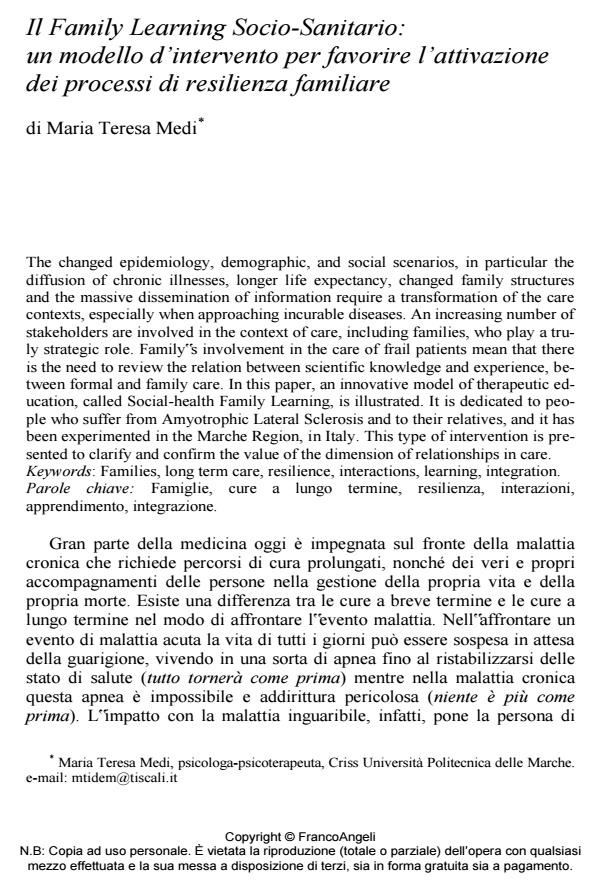Il Family Learning Socio-Sanitario: un modello d’intervento per favorire l’attivazione dei processi di resilienza familiare
Journal title SALUTE E SOCIETÀ
Author/s Maria Teresa Medi
Publishing Year 2015 Issue 2015/3
Language Italian Pages 16 P. 131-146 File size 322 KB
DOI 10.3280/SES2015-003011
DOI is like a bar code for intellectual property: to have more infomation
click here
Below, you can see the article first page
If you want to buy this article in PDF format, you can do it, following the instructions to buy download credits

FrancoAngeli is member of Publishers International Linking Association, Inc (PILA), a not-for-profit association which run the CrossRef service enabling links to and from online scholarly content.
The changed epidemiology, demographic, and social scenarios, in particular the diffusion of chronic illnesses, longer life expectancy, changed family structures and the massive dissemination of information require a transformation of the care contexts, especially when approaching incurable diseases. An increasing number of stakeholders are involved in the context of care, including families, who play a truly strategic role. Family?s involvement in the care of frail patients mean that there is the need to review the relation between scientific knowledge and experience, between formal and family care. In this paper, an innovative model of therapeutic education, called Social-health Family Learning, is illustrated. It is dedicated to people who suffer from Amyotrophic Lateral Sclerosis and to their relatives, and it has been experimented in the Marche Region, in Italy. This type of intervention is presented to clarify and confirm the value of the dimension of relationships in care. Keywords:�
Keywords: Families, long term care, resilience, interactions, learning, integration.
Maria Teresa Medi, Il Family Learning Socio-Sanitario: un modello d’intervento per favorire l’attivazione dei processi di resilienza familiare in "SALUTE E SOCIETÀ" 3/2015, pp 131-146, DOI: 10.3280/SES2015-003011